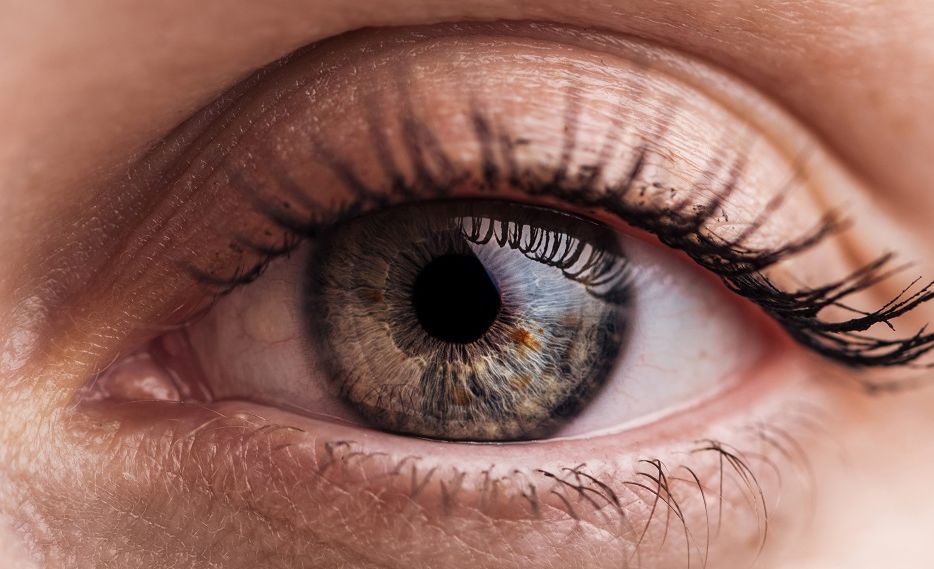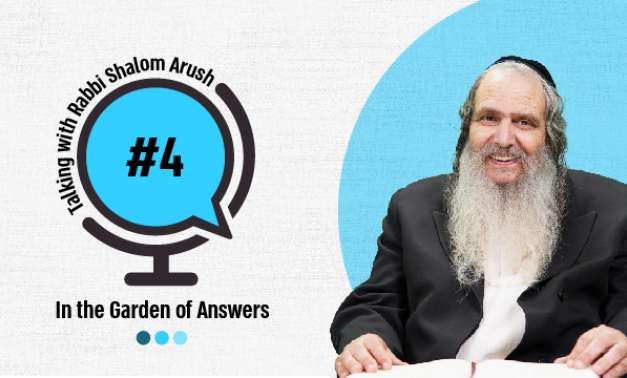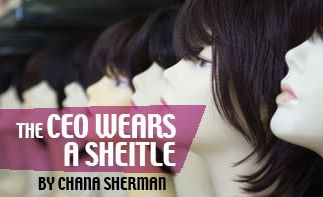
Why Cover Your Hair?
The answer to a young married wife who finds hair coverings annoying, and wants to understand why Judaism requires her to cover her hair...

Dear Rabbi,
I’ve been married now for almost 2 years and I keep my hair mostly covered when I go out. That is only because my husband wants me to, I was raised that way as well and therefore do it. However I hate it, I find it very uncomfortable and annoying. I like to know the reason behind the things I do and I think because I have not found a reason for doing this I have a harder time keeping to it. Rabbi, what is the reason for hair covering? As well as what is the source for it? I know that the Torah says that they uncovered the wayward woman’s hair and from there we learn that a woman’s hair must be covered, but is that it? Is that all the proof we have? No explanation to how or why or when? Rabbi, I know there must be more but I don’t know where to look. Please advise. Thanks, Farrah from LA
Dear Farrah,
We don’t look for proof or explanations of the Torah’s commandments. We do try and understand to the limits of our intellectual faculties, but when we reach the limits of our comprehension, we still continue our obedience with faith that The Creator knows what’s best for us. In other words, we perform the mitzvot with simple emuna.
Even so, here’s a brief answer to your question: The Sefer HaChinuch explains (mitzva 374) that the covering of the hair is designed to tone down a married woman’s beauty, so that she won’t attract the attentions of other men, which causes two problems:
- She subjects herself to overtures and propositions; even the purest of women are liable to face difficulty in saying no to a stubborn suitor (as in the case of Bruria, the daughter of the saintly Rebbe Hanina ben Tardion and the wife of Rebbe Meir baal HaNess. If Bruria, a woman of monumental spiritual and intellectual stature could be tempted, then any woman can be tempted).
- A married woman who flaunts her beauty, and therefore causes other men to look at her, becomes a “machshil rabim”, one who causes other people to transgress. Such a person is denied the privilege of penitence, and her prayers are never answered.
Other key Rabbinical sages (Rashi, Ritba, Nimukei Yosef, Rebbe Aaron Halevi, and many more) say that uncovered hair in a married woman signifies “Pritzut”, or utter lack of modesty. Even though Jewish law is very strict about the financial rights (Ketuba) of a divorced woman, a Jewish man is allowed to divorce a woman that refuses to cover her hair without paying a cent.
The greatest lawgivers, from the Magen Avraham to Rebbe Moshe Feinstein, all agree that hair covering for a married women is a Torah (d’oraita) ordinance. That means that uncovered hair is just as serious as eating pork. Even though you don’t understand why pork is forbidden, you still wouldn’t want to put it in your mouth.
According to Kabbalah, uncovered hair creates a barrier to Hashem’s divine light, which nurtures the soul. Therefore, a married women who walks around with uncovered hair in effect does damage to her own soul, by cutting herself off from Hashem. With covered hair, you become a worthy vessel for Hashem’s Divine light – the source of all blessings and the protection against all calamity. The advantage of having Hashem shine His countenance on you therefore outweighs a million times whatever discomfort you might have in wearing a wig or scarf.
There are so many nice ways to cover your hair. Be happy that you’re doing Hashem’s will by being a loyal, modest wife. Don’t let the Yetzer (Evil Inclination) make you crazy. Dressing flashy so that you’ll look foxy for other men will only ruin your own marriage. Besides, you’ll save a mint at the hairdressers.
As a man, I can’t fully appeal to your woman’s ingrained need to feel attractive. I’d therefore like to share with you an essay written by Rebbetzen Varda Branfman of the Carob Spring Foundation . Entitled “The Tichel”, Yiddish for “the scarf”, this is a real gem:
…Years ago, I asked a knowledgeable woman: “What’s our equivalent of putting on tefillin?” She said: “It’s modesty in dress and how you cover your hair. We’re doing it constantly, 24 hours a day.”
An old woman without a tichel is just a gray, old woman. With a tichel, she’s timeless.
A tichel can serve as make-up without the make-up. The colors against the skin enhance a woman’s beauty. So can the shape of the tichel.
During labor and delivery, a woman in a tichel has a measure of dignity that the medical procedures can’t diminish. While she may feel frightened and vulnerable, the tichel is her fortress of safety and prayer. She can dwell there in the midst of the flurry around her. The tichel defines her private space where nothing can touch her.
Today there are Jewish women getting married, and they are not covering their hair. They look the same as they did before the chuppah. But the woman who puts on the tichel is transformed. She has changed forever.
I’ve looked at the new brides, days or weeks after their marriage. I knew them as teenage girls who came to babysit for my children. Or they lived in the neighborhood and I passed them coming home from high school. Now they are married women, and their status under Jewish Law is equal to mine.
I look to see how they’ve changed in such a short time. Yes, the change is dramatic. The tichels frame their faces, and their features are more defined. Everything is in their face and their eyes. They seem more focused, more formidable, stronger forces to be reckoned with.
Here is the essential self without distraction of the fluff. The fluff may be there, but it doesn’t stand in the way of me seeing her or her seeing me.
The tichel does it, trapping all the loose ends. One might have thought it was an impossible task or that, at least, it would have taken years to accomplish. Not true. The tichel does it in one stroke, and she is utterly changed.
© Varda Branfman 2004
Farrah, by virtue of your head covering, you’ll see tons of blessings in your household, with unlimited abundance of material and spiritual wealth, amen! Yours always, Lazer Brody







9/07/2016
100% True – but careful!
Bs"d Pinhas – what you say about a an unmarried woman covering her hair is derived from the Sifri. The Mishnah Brurah (75:2) quotes the Panim Meiros and the Magein Gibborim that if an unmarried girl had had relations before and still refuses to cover her hair – we do not compel her to do so. Judging by each and every situation – in many cases it might be preferable not even to notify her of such a requirement.
9/07/2016
Bs"d Pinhas – what you say about a an unmarried woman covering her hair is derived from the Sifri. The Mishnah Brurah (75:2) quotes the Panim Meiros and the Magein Gibborim that if an unmarried girl had had relations before and still refuses to cover her hair – we do not compel her to do so. Judging by each and every situation – in many cases it might be preferable not even to notify her of such a requirement.
9/06/2016
YES! WE WILL OVERCOME!
I only wish I could amplify Rav Brody's call millions of times over! With so many confused young men and women today, even among observant circles – the Yetser Hara will "allow" people to build yeshivas and increase Torah study without too much resistance. But the inherent modesty of the Jewish housewife? This is where he goes to war – for this is ultimately what counts the most! We're all routing for you!